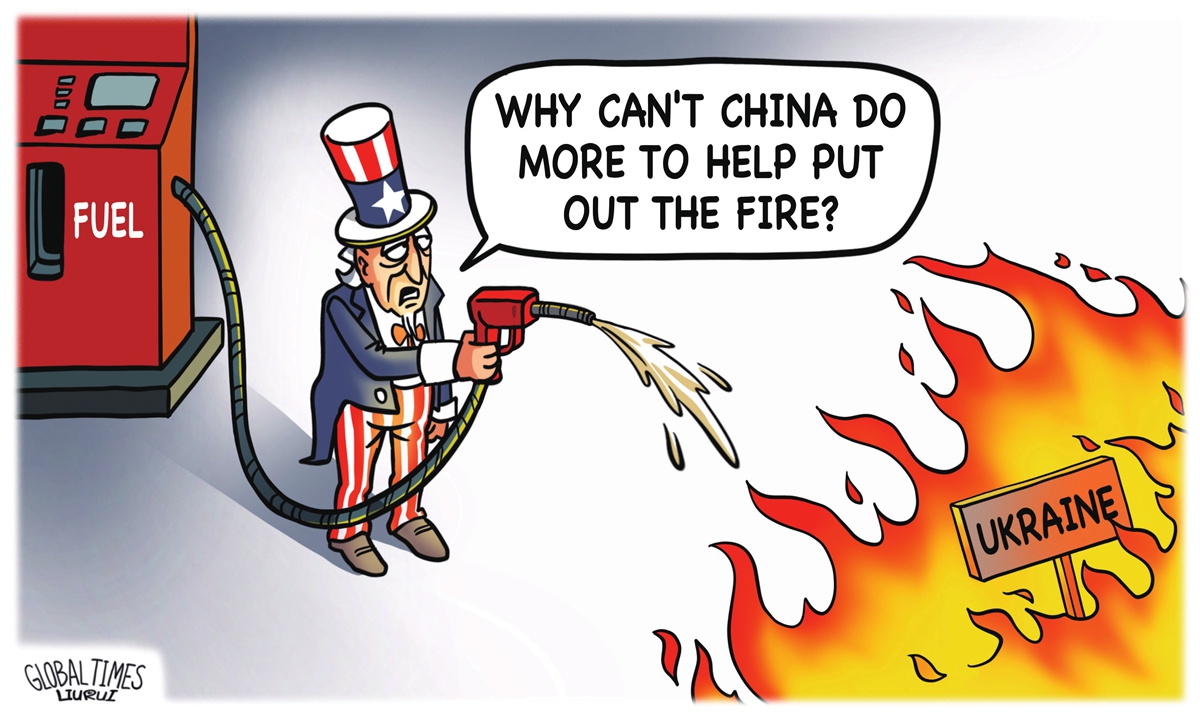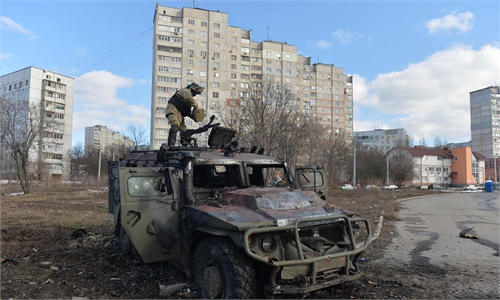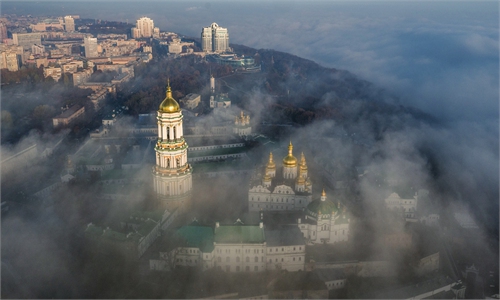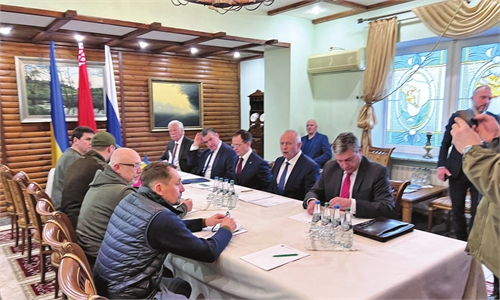
Illustration: Liu Rui/GT
Citing a "Western intelligence report," The New York Times reported that senior Chinese officials told senior Russian officials in early February not to invade Ukraine before the end of the Winter Olympic Games in Beijing. The media outlet claimed that the report "indicates that senior Chinese officials had some level of direct knowledge about Russia's war plans or intentions."
This malicious report has been refuted by China.
In the West's rivalry with the rest of the world, Western media often cite so-called intelligence personnel or someone with knowledge of certain affairs to spread baseless information, trying to making it look exclusive.
On the one hand, those media do this for the sake of attracting public attention and seeking opinion influence. On the other, those who "offer" so-called exclusive information behind the scenes are out of political and diplomatic purposes. They simply want to exert international opinion pressure on countries that have different ideologies and values and tarnish the image of the targeted countries.
As a US media outlet, The New York Times released this irresponsible fake news at a critical juncture, which only aims at shirking responsibilities and distracting people's attention.
The military clash between Russia and Ukraine is the manifestation of the worsening ties between the two countries since 2014. The US and NATO should shoulder inescapable responsibilities. The conflict is the inevitable result of the US and NATO's long-term squeezing of Russia's security space. Under the framework of major power competition and confrontation between Russia and the US, Ukraine is just a chess piece used by the US-led West to confront Russia.
There are three negative roles of the US and NATO in the ongoing Russia-Ukraine conflict - they incited the sensitive security nerves of Russia, supported Ukraine to confront Russia, and escalated the tense situation that indirectly pushed for the eruption of the conflict.
However, some in the US and the West want to use Russia's "special military operation" against Ukraine as an excuse to put the blame on Russia, and even want to blame China, to seek greater geopolitical interests. Prior to the conflict, NATO Secretary General Jens Stoltenberg said that China and Russia "want a world where big powers can decide what smaller powers and countries can do" and that a close China-Russia relationship impacts NATO security.
Several hours after Russia's military action against Ukraine, US State Department spokesman Ned Price said "you will have to ask the PRC whether they have used their own considerable influence with the Russian Federation" to de-escalate the crisis.
All this rhetoric reveals the West's long-held zero-sum and Cold War mentality.
China's stance on the Ukraine issue has been consistent. China supports solving the issue via peaceful negotiations. This stance has been delivered by China's State Councilor and Foreign Minister Wang Yi and China's permanent representative to the United Nations Zhang Jun on several occasions.
China maintains that the sovereignty and territorial integrity of all countries should be respected and protected and the purposes and principles of the UN Charter should be observed. In contrast to the US and the West which have kept escalating tensions, China has always called on the international community to act in a responsible manner, push relevant parties to return to the track of political settlement as soon as possible, and seek a comprehensive solution to the Ukraine issue through dialogue and consultations. Moreover, China is willing to play a constructive role in realizing this goal.
The US and the West are the initiators of the current Ukraine crisis. Since US President Joe Biden took office, he has reintegrated the transatlantic alliance, used NATO to counter Russia, and conducted front-line confrontation through a series of military exercises. The threat and shadow of conflict have always existed. In addition, the US and NATO exploited Ukraine's eagerness in joining NATO to encourage Ukraine to confront Russia. Before the conflict broke out, a large amount of military equipment and offensive weapons entered Ukraine. At the same time, NATO directly deployed military forces in its member states in Eastern Europe, which increased tensions and indirectly contributed to the outbreak of the conflict. The US cannot erase these imprints.
The author is vice president of China National Association for International Studies and managing director of the Center for Russian Studies, East China Normal University. opinion@globaltimes.com.cn



